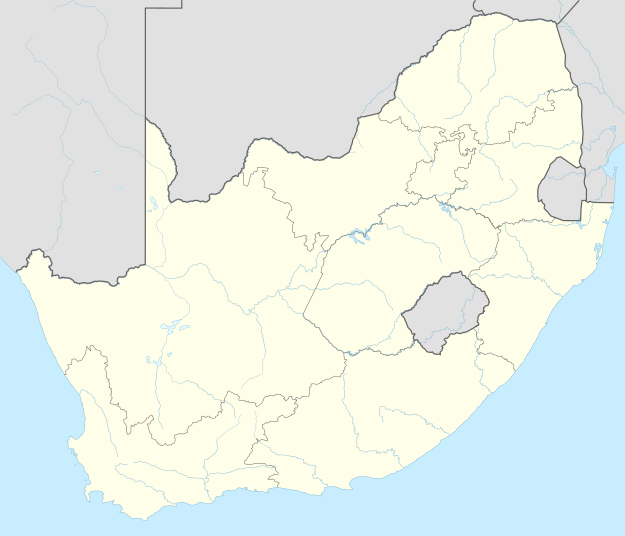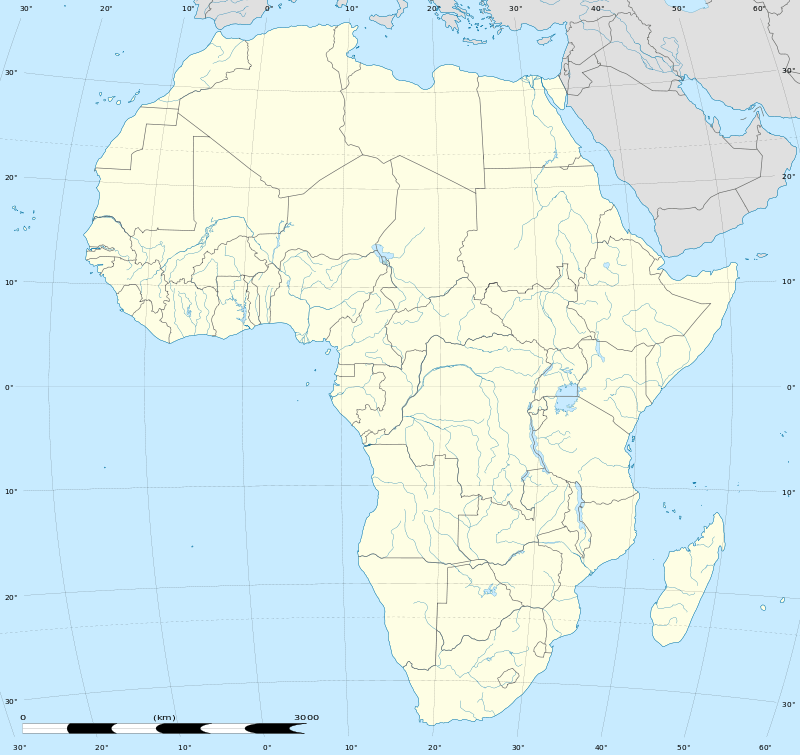Philippi, Cape Town
| Philippi | |
|---|---|
|
Philippi Township | |
 Philippi  Philippi  Philippi
| |
|
Location within Cape Town  Philippi | |
| Coordinates: 34°1′S 18°33′E / 34.017°S 18.550°ECoordinates: 34°1′S 18°33′E / 34.017°S 18.550°E | |
| Country | South Africa |
| Province | Western Cape |
| Municipality | City of Cape Town |
| Area[1] | |
| • Total | 47.96 km2 (18.52 sq mi) |
| Population (2011)[1] | |
| • Total | 200,603 |
| • Density | 4,200/km2 (11,000/sq mi) |
| Racial makeup (2011)[1] | |
| • Black African | 90.3% |
| • Coloured | 8.0% |
| • Indian/Asian | 0.3% |
| • White | 0.3% |
| • Other | 1.1% |
| First languages (2011)[1] | |
| • Xhosa | 78.7% |
| • Afrikaans | 7.3% |
| • English | 6.2% |
| • Zulu | 1.1% |
| • Other | 6.7% |
| Postal code (street) | 7750 |
| PO box | 7781 |
Philippi is one of the larger townships in Cape Town, South Africa, although the exact size is unknown. Regarding to the 2011 Census approx. 191,000 people live in Philippi.[2] The township is relatively new. Along with Khayelitsha and Delft, it was founded in the 1980s.[3]
Philippi is seen by government and businesses as ideal for certain business related developments. Although it is also known to grow about 80% of Cape Town's vegetables in the farmland just outside the township, this area of Philippi is slated for a number of large developments including the 'Philippi Mini-City'.[4][5]
History
The first community of local residents was recorded in 1833 during which time it was known as "Die Duine" (The Dunes). Until the 1970s the area was mainly used for grazing with a few farms located in the area. Rapid residential growth began in the late 1970s and early 1980s as apartheid policies as economic migrants from the former Ciskei and Transkei homelands in the Eastern Cape settled in nearby Nyanga, Langa, Gugulethu, Crossroads, Browns Farm and Samora Machel. As resistance to apartheid grew in the 1980s Philippi increasingly became a place of refuge from the political unrest in the former homelands. Additional residents came to live in Philippi when farms in Mitchell's Plain were eliminated due to urban sprawl.[6]
References
- 1 2 3 4 "Main Place Philippi". Census 2011.
- ↑ "Philippi Profile" (PDF). City of Cape Town. Retrieved 2013-09-11.
- ↑ "Urban Matters".
- ↑ "The Germans of Philippi". Archived from the original on 2009-10-25.
- ↑ "Cape Town Grows Dynamically".
- ↑ Anderson, Valerie; Azari,Sepideh; van Wyk, Anya (2009). "Philippi Community Profile" (PDF). SAEP. Retrieved January 17, 2013.

.svg.png)